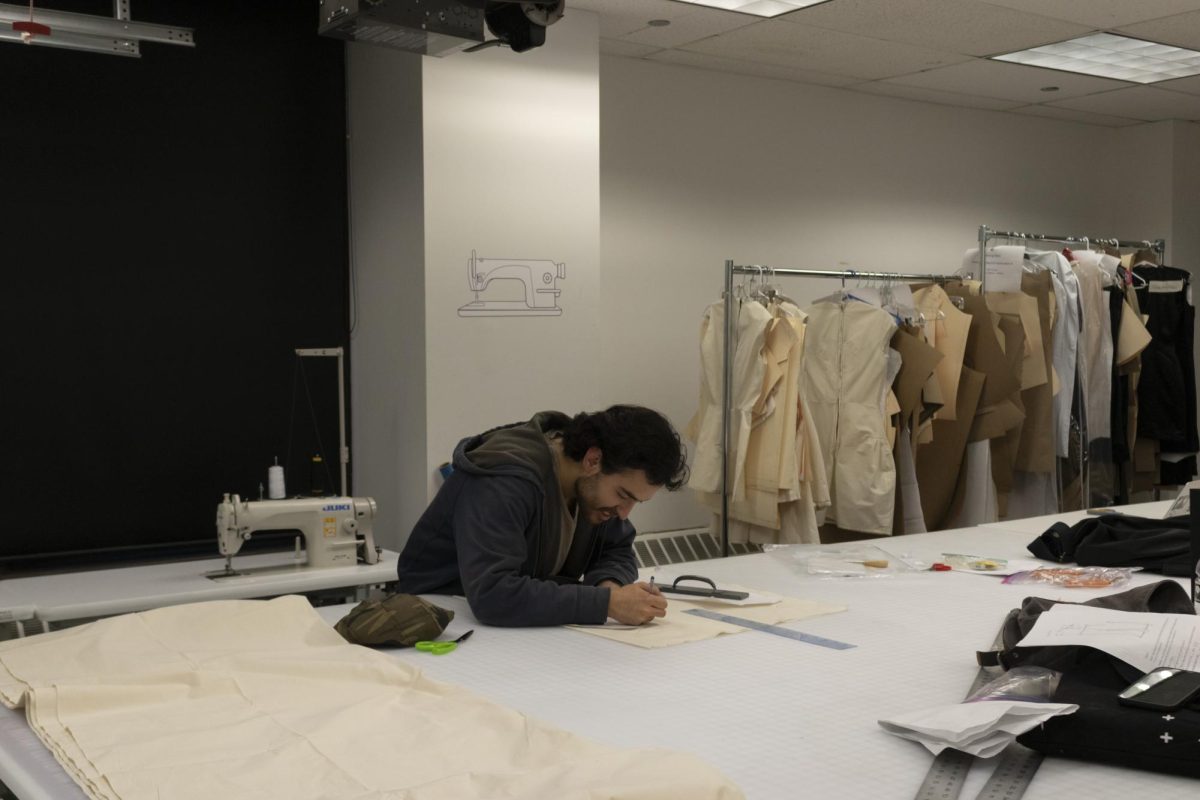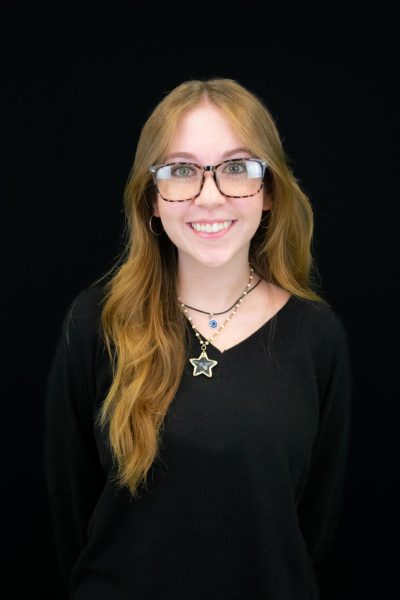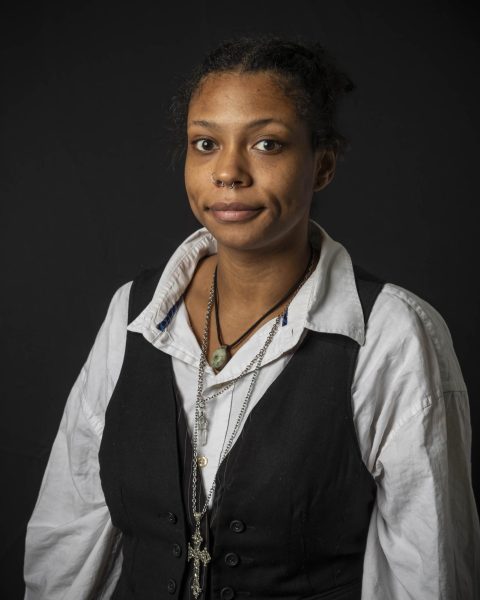As sustainability becomes more and more topical throughout the fashion industry, students are coming together to collaborate on sustainability projects.
Lauren Peters, assistant professor of Fashion Studies Department and director of the Fashion Study Collection, first connected with the Science and Mathematics Department to discuss intertwining departments to create a collaboration with sustainability when they were developing the sustainable fashion minor.
After the fashion sustainability minor was developed two years ago, Michelle Rafacz, associate professor of biology and coordinator of the Bachelor of Arts in environmental and sustainability studies, was introduced to the global movement Fashion Revolution week – the world’s largest sustainable fashion activism movement.
“We wanted to make sure that it was interdisciplinary, so we talked with a number of our colleagues from that department to make sure that there was sufficient crossover and to make sure that our students were getting the most holistic introduction to sustainability possible,” Peters said. “From those conversations, that’s how Michelle and I got to know one another.”
Peters had led Fashion Revolution Week in the past but made it entirely student-led this past April.
“I reached out to Michelle to see if we might want to make kind of an interdisciplinary cohort of students to oversee it and make up the programming for not just our departments, but for the entire college,” Peters said.
Rafacz was one of two people in charge of reaching out to students and asking if they were interested in being in a committee for the college’s own Fashion Revolution Week.
“We had a series of meetings,” Rafacz said. “We’ve had students from both departments work to create several events during the week of Fashion Revolution week on campus in April.”
Senior Mick Copeland, fashion merchandising major, worked on the project after being asked if she was interested in being a part of this collaboration. Copeland has “always been involved in environmentally friendly practices” and worked with three other students on the project: junior Julia Magel, sophomore Allie Stafford and alum Anna Stobaugh.
“We had a bunch of meetings about coming up with ideas to get more people involved. One of the big things we wanted to do was get people who weren’t in fashion involved with it,” Copeland said. “It was really cool to get non-fashion people involved. We basically had a form and had anyone who wanted to be in it sign up and we didn’t turn anyone away.”
Several events were held last April in honor of the college’s Fashion Revolution Week: a fashion show featuring sustainable designs, guest speakers presenting sustainability topics, a panel discussion, zine-night workshop – prints made of various texts, images and messages, ethical fashion, and a mending workshop.
Students were able to showcase their sustainable projects during the fashion showcase during Fashion Revolution Week.
“Fashion Revolution week is, in many ways, kind of the icing on the cake and an opportunity to let the students take the lead and celebrate the work that they’ve been doing,” Peters said. “They got to put their pieces on display that they’d worked on in various classes – from upcycling projects to zero waste pattern cutting.”
A collaborative community made up of music, film and television, fashion, art majors and more all came together to learn about sustainability from the student-led event.
“I think really it was the people who showed up who made it what it was,” Copeland said.
Rafacz is hoping to see more sustainability projects in the future.
“I would really like to get our students more involved with even just talking about the science behind sustainability,” Rafacz said. “I would also like to see some more activism – so having students join together, maybe even creating a sustainable fashion club, or something like that. I think it’d be a really great idea.”
Copeland noticed more students wanting to get more involved in sustainability.
“Last year when we did a bunch of events [at Fashion Revolution Week] and I did zine-night, people were like, “Oh are you going to be here next week?” and they thought it was a regular thing,” Copeland said. “It’s a thing people at Columbia are wanting to be involved with.”










